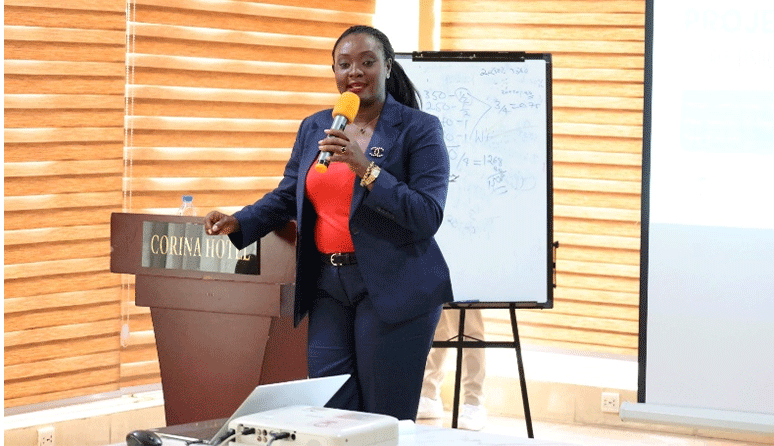The National Fisheries and Aquaculture Authority (NaFAA) through its Director General Emma Metieh Glassco has launched a new fisheries project in Monrovia with a call to the European Union to support the University of Liberia Fisheries and Aquaculture Sciences Department to further enhance and strengthen the knowledge gap.
Speaking Tuesday, August 20, 2024, during the grand launch of an EU-financed project, the Liberia Fisheries Governance Project (LFGP) in Monrovia, Madam Glassco urged the European Union to consider strengthening the human resources capacity of the Fisheries and Aquaculture Department at the University of Liberia in its future agenda.
“We will need additional support for that program from the European Union,” Madam Glassco messaged the European Union through its Ambassador who was also part of the ceremony.At the same time, Madam Glassco on behalf of the Government of Liberia has commended the European Union for what she terms as its strong support to the Liberian Fisheries sector over the past few years.
She disclosed that the European Union is currently supporting the Liberian Fisheries sector with five of its fisheries experts to enhance and strengthen the governance system of the sector. She described the EU as one of Liberia’s strategic partners in the fisheries sector. She also disclosed that the EU has provided technical and sectorial support to the sector.
For her part, Nona Deprez, European Union Ambassador accredited to Liberia and the head of Delegation of the European Union to Liberia mentioned that fisheries are a priority sector for both the Government of Liberia and the European Union at the global level, with the European Green Deal and its Farm to fork strategy.
“Fisheries are a priority sector for both the Government of Liberia and the European Union-at the global level, with the European Green Deal and its Farm to Fork Strategy, and at the Delegation level, with dedicated bilateral programs and our TEI on Safe and Sustainable Food Systems,” Amb. Deprez added.
Ambassador Nona Deprez noted that currently, the Liberian Fisheries sector which provides full or part-time employment for about 37,000 people, 60% of whom are women contributes to approximately 10% of the country’s GDP, and is an important driver for improved nutrition, with about 65% of animal protein consumed in Liberia coming from fish, 80% for the coastal population.
Ambassador Deprez also mentioned several challenges that threaten to hinder the sector’s development citing climate change as the first. She named sea level rise, coastal flooding, pelagic seaweed invasion, and more frequent, severe, and unpredictable extreme weather events directly threatening Liberia’s coastal population.
The EU Ambassador to Liberia also stated that rising ocean temperature, acidification, and current changes affect the quantity and distribution of the fish species.Also speaking, the Environmental Justice Foundation Program Officer, Augustine Fayiah, highlighted the critical role his entity has played over the last few years in enhancing and strengthening the fisheries sector through the establishment of the Core Management Association in four counties namely Grand Cape Mount, Margibi, Grand Bassa and Grand Kru.
Fayiah said the EU-funded Communities for Fisheries Project’s specific objective is to reduce illegal fishing and improve the sustainability of fisheries by expanding and strengthening community co-management associations, creating effective capacity for community monitoring and reporting of illegal fishing.
He said EJF has supported the establishment of seven CMAs in Liberia covering four coastal counties, including Grand Bassa, Margibi, Grand Kru, and Grand Cape Mount, and set up 32 Village Saving Loan Associations, VSLA.



